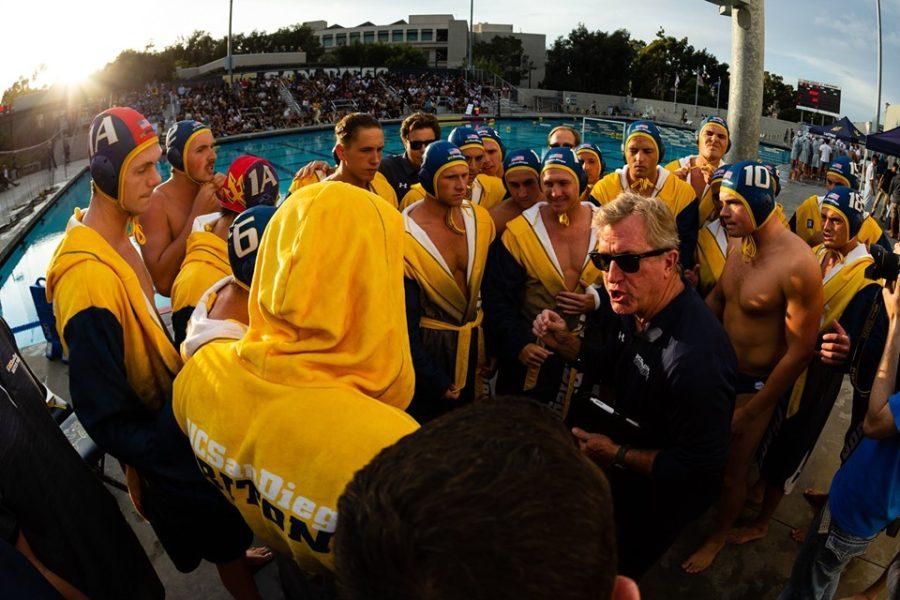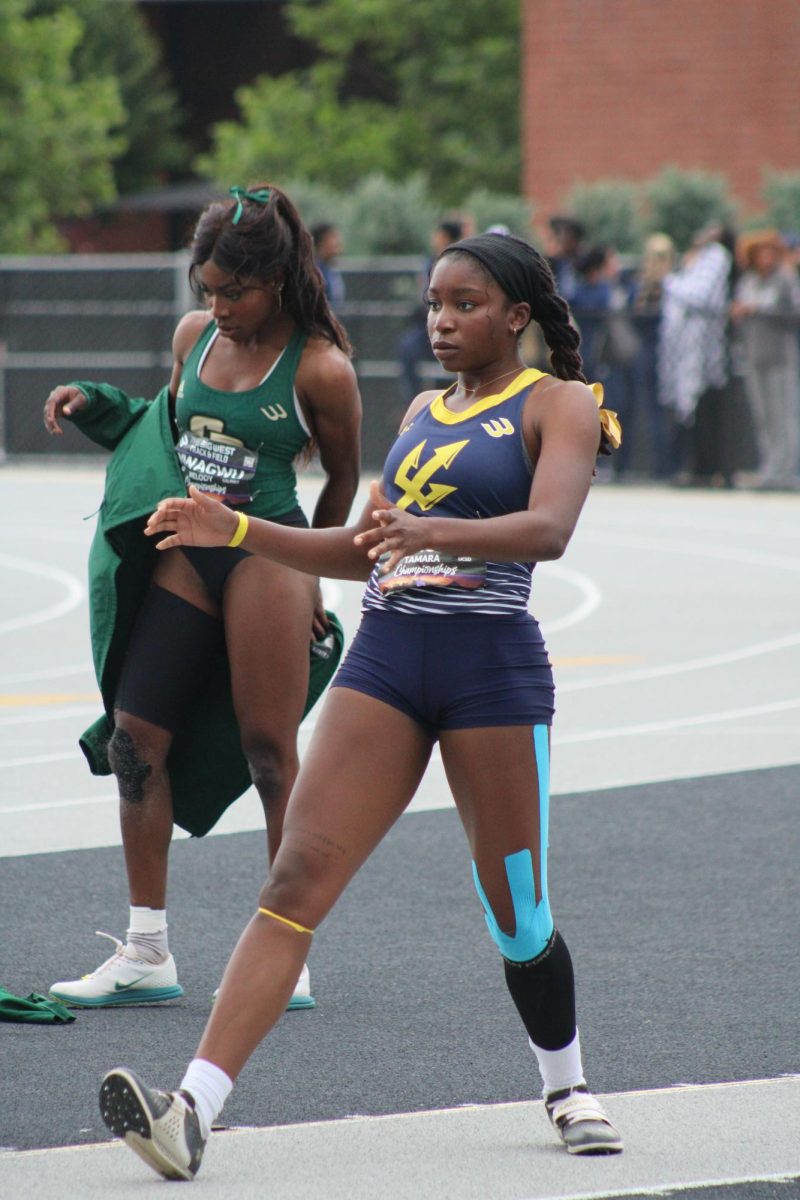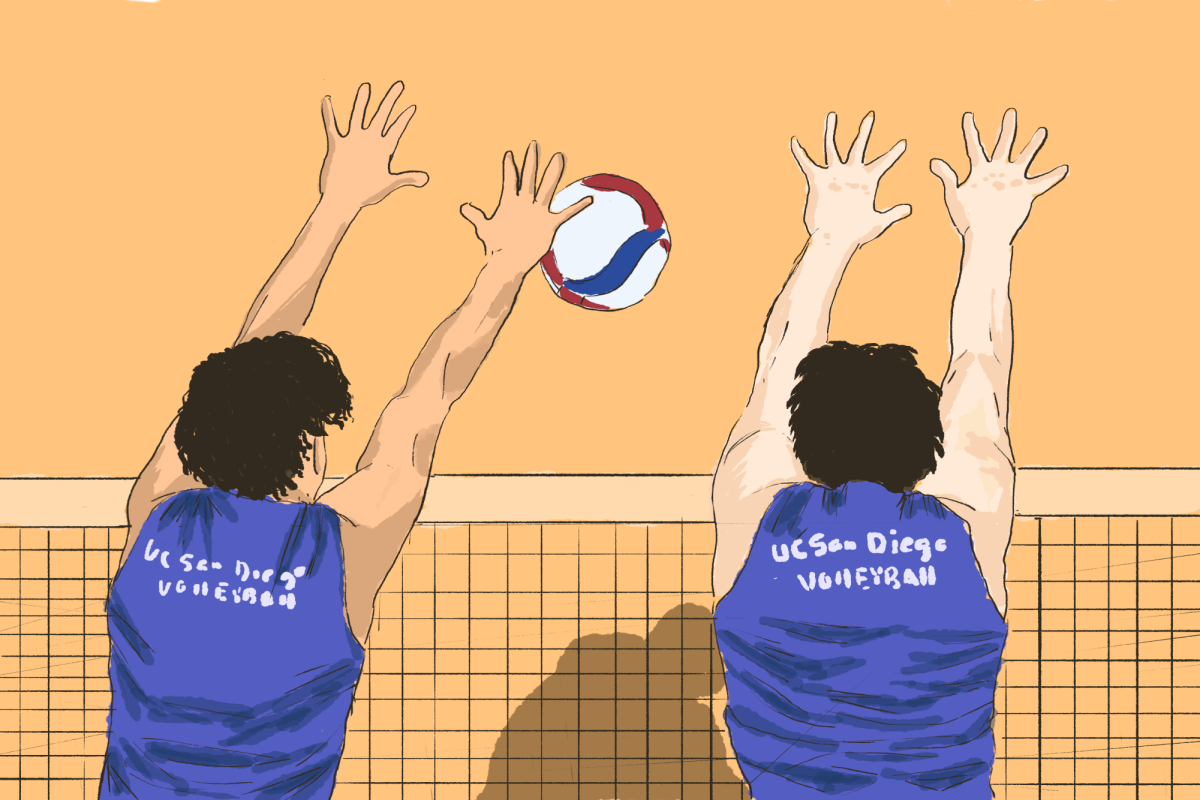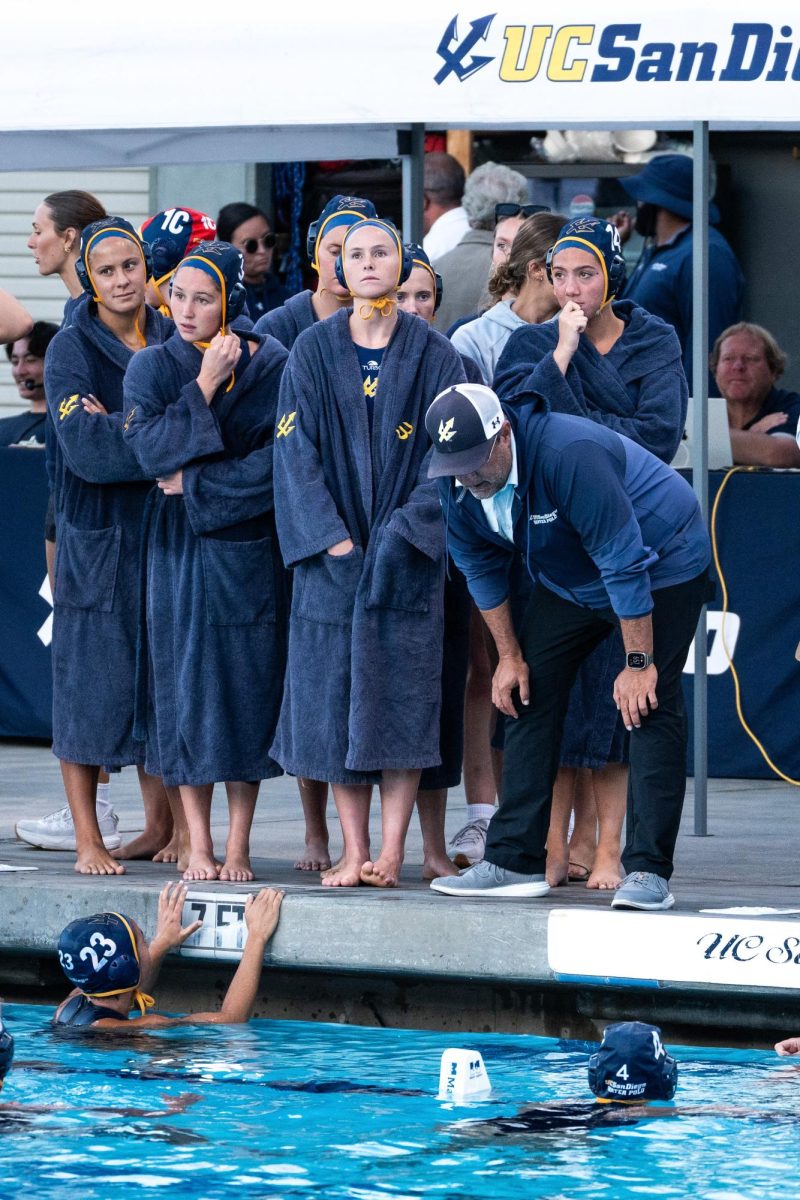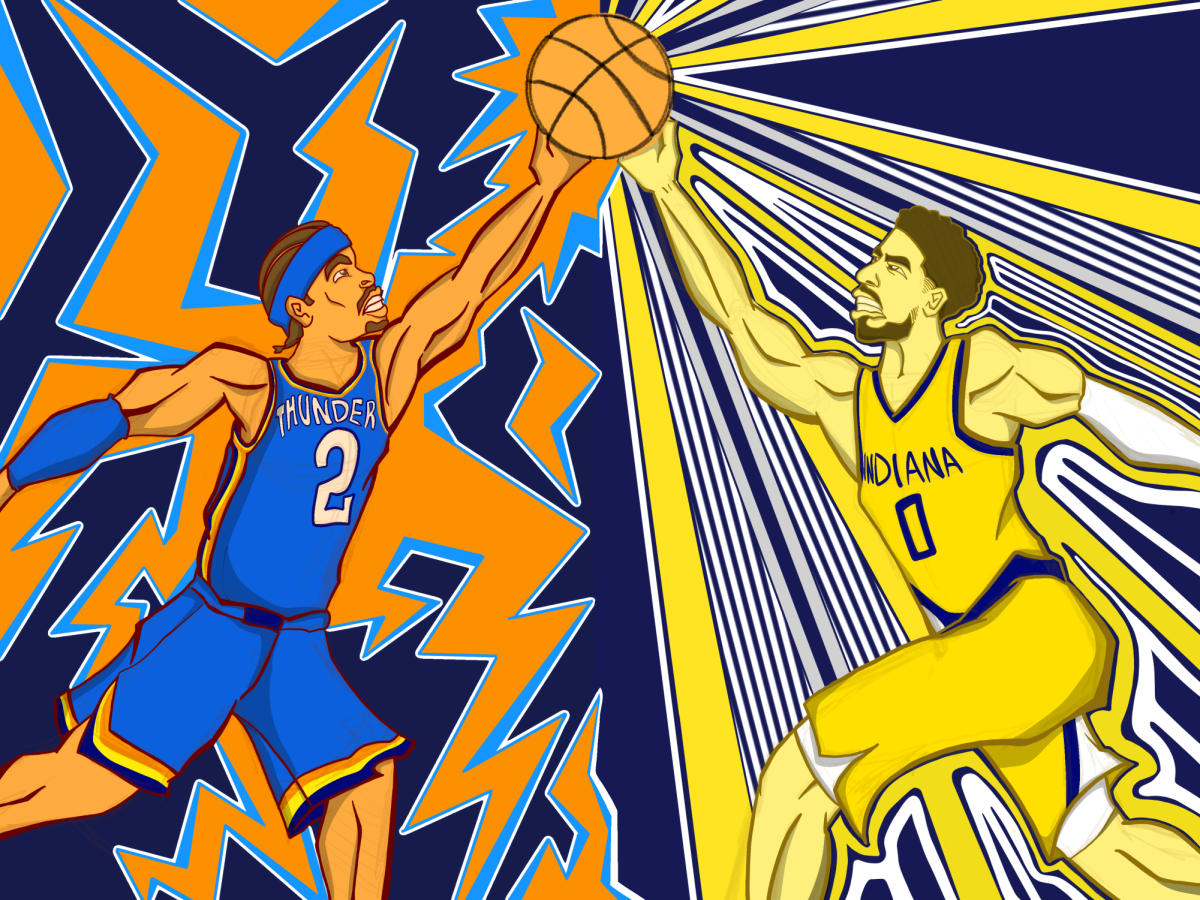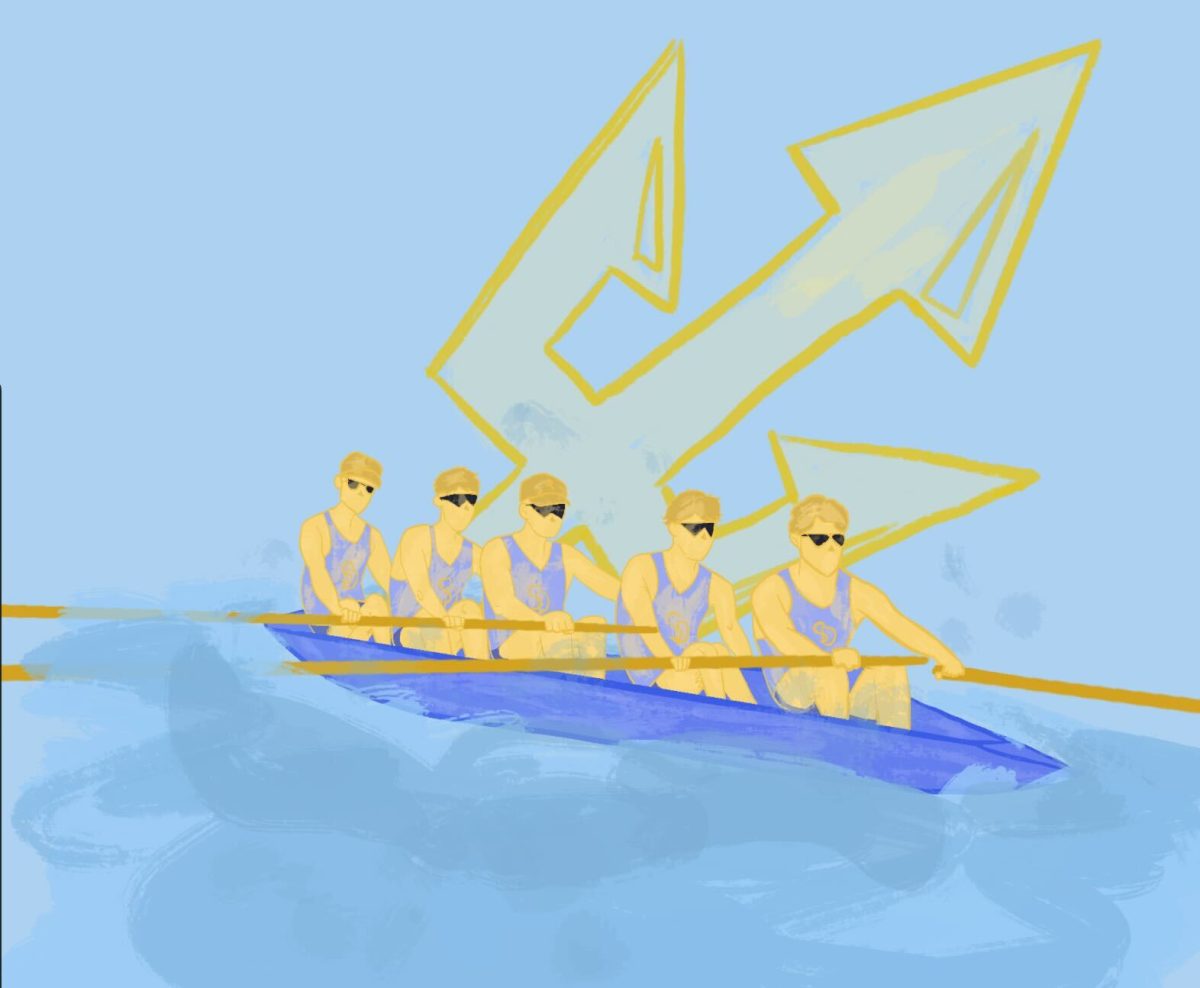The office is unlike any other at UC San Diego. A glossy wood grain ceiling reflects the natural light pouring in from large floor to ceiling windows. Photos, trophies, medals, and more are strewn around an office filled with water polo caps. One door leads you to the rest of the Canyonview Aquatics Center, while the other opens up to the outdoor training pool. No linoleum, no LED lighting, just a bright and vibrant space for a coach with the exact same vibe.
It’s no wonder the office fits him perfectly though; he got to design it himself. The same could be said of the UCSD men’s water polo team.
Coach Denny Harper is the big man on campus when it comes to UCSD’s water sports. The director of aquatics for 26 years and head coach of the men’s water polo team for 40 seasons, Harper has been at UCSD as a water polo coach since he was in his twenties.
“I was only two or three years older than them,” Harper said. “We certainly had good times back then and they were my friends, yet they respected me as their coach.”
Harper has coached the men’s team for all of his time at UCSD, but that has been far from his only role. A father of five children, Harper coached the women’s water polo team for 16 seasons, going to five USA Water Polo National Championships before the NCAA had recognized it as a sport.
“I’m proud of the fact that our program was without a doubt instrumental in having the NCAA realize that [women’s water polo] was a viable sport and should be sponsored,” Harper said. “I honestly believe that without the UCSD women’s [water polo] program being treated as a varsity program under [former athletic director] Judy Sweet’s watch, I don’t know that the NCAA would’ve chosen women’s water polo to be an actual sport.”
But by far his most famous job on campus has been his role in turning around the men’s water polo team almost immediately after accepting the job, a job he’s not even sure anyone else applied for. After taking over in 1980, Harper’s teams gained national exposure just a couple of seasons later. He credits the success to the players he inherited, a group which he proudly refers to as the “Transition Team”.
“From the get-go, I was put in a situation where I inherited a bunch of guys that thought that they could play at a much higher level,” Harper said. “They were the ones that started playing a tougher schedule; they set the tone.”
The next season, the team finished 10th in the nation, which Harper credits to “jumpstarting” the program’s rise to the top of the NCAA. Even without having the “astronomical resources” of some major programs around the country, Harper’s squads embraced the mindset of “needing to be overachievers” in order to compete, something he believes has carried on through all these years.
Despite all of the accolades and awards he has earned as a coach, which includes 16 Association of College Water Polo Coaches awards, 19 Western Water Polo Association championships, and over 640 career wins, the story of Harper becoming a member of the Triton athletics family has little of the shine that the rest of his illustrious coaching career has garnered.
His story involves only his best friend and a love for water polo.
Harper’s best friend from Santa Barbara Community College, Russ Hafferkamp, now an assistant water polo coach with UC Berkeley, had the job first. After Harper finished coaching San Diego State University’s women’s club water polo and finished playing water polo for SDSU, Hafferkamp still had the job at UCSD. But when Hafferkamp left for a job in Pismo Beach, his best friend was his first call.
“It all happened fairly organically,” Harper said. “He called me and said ‘Are you interested in taking over? I’m leaving,’ and I said ‘Sure.’”
Needless to say, the interview, which was led in part by his friend Hafferkamp, went well and he got the chance to coach the men’s water polo team at UCSD. Harper says he still has a copy of the contract he signed, which guaranteed him a meager sum of $800.
“At the time it wasn’t ‘I’m going to be a college coach;’ we were all doing it just for the love of coaching,” Harper said. “It was a classic case of becoming immediately connected and enamored with the players that I had; I pretty much got hooked.”
A lot has happened at UCSD though, since Harper’s first day on the job. In the time since he became head coach and today, Canyonview Aquatics Center was built in 1983, along with the Triton pool in 2006. The university has expanded in general over the last 40 years, with the student population swelling from around 8,000 to over 30,000 students.
“The growth here has been kind of staggering,” Harper said. “It’s exciting, [but] I will say there are certainly aspects of the small sleepy campus here in La Jolla I miss.”
Even though he’s been here for all these years, spanning nearly five decades, Harper still envisions a bright future at UCSD, with the trolley humming around campus and Division I athletics bringing students together.
But for now, Harper is content to continue to man the helm from his uncommon office, as he attempts to guide his Tritons deep into the NCAA Division I playoffs once again.


